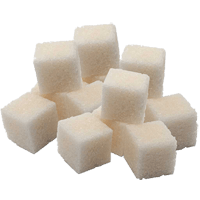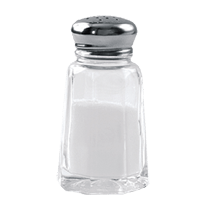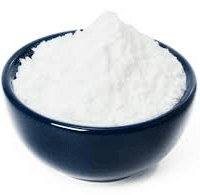Vanilla extract nutrition: calories, carbs, GI, protein, fiber, fats
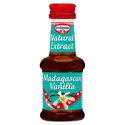
Introduction
Vanilla extract is commonly used as a flavoring in baking. Not only does it add a pleasantly sweet aroma, but it also enhances all flavors of the mixture to which it is added.
Table of contents
Appearances and Production
Vanilla extract is usually dark brown; however, artificial vanilla extract can also be clear.
Vanilla extract is made from the seed pods of the vanilla orchid. These beans later go through a long process of blanching, fermenting, and conditioning, after which they are soaked in ethanol and water. This is called the extraction process, the result of which is the vanilla extract (1).
Varieties
The main compound responsible for the quality of vanilla extract is vanillin. Pure vanilla extract contains natural vanillin and many other components, whereas artificial vanilla extract is made entirely of artificially derived synthetic vanillin. However, synthetic vanillin is chemically identical to its natural counterpart.
Nutrition
Vanilla is only used in small amounts; however, it can add nutrients to the final product, slightly altering its nutritional value.
The nutritional value may change depending on whether the vanilla extract is natural or artificial, as well as the conditions of its production.
One serving size of vanilla extract is the average amount of this flavoring added to recipes, equal to 4.2g or one teaspoon.
Macronutrients and Calories
Being liquid, 53% of vanillin extract consists of water, with another 34% of ethyl alcohol or ethanol.
Calories in Vanilla Extract
One teaspoon or a serving size of vanilla extract contains about 12 calories.
Macronutrients chart
Carbohydrates in Vanilla Extract
Carbohydrates make up about 13% of vanilla extract. One teaspoon of vanilla extract contains around half a gram of carbohydrates.
The carbohydrate composition is wholly made of sugars and contains no dietary fiber.
Nonetheless, without added sugars, pure vanilla extract does not contain carbohydrates.
Protein in Vanilla Extract
The protein content in vanilla extract is negligible, as 100g contains only 0.06g.
Fats in Vanilla Extract
The fat content of vanilla extract is also insignificant. Vanilla extract, naturally, does not contain cholesterol or trans fats.
Vitamins
Vanilla extract is not very rich in vitamins. It contains moderate levels of vitamin B2, vitamin B3, vitamin B6, vitamins B1 and B5.
However, vanilla extract completely lacks vitamins D, A, K, B9, B12, E, and C.
Vitamin coverage chart
Minerals
Vanilla extract is relatively high in manganese. It also contains moderate to low amounts of copper, potassium, calcium, magnesium, zinc, iron, and phosphorus. It does not contain selenium.
Vanilla extract is low in sodium.
Mineral coverage chart
Glycemic Index
A specific number has not yet been calculated for vanilla extract’s glycemic index; however, it is assumed to be low.
Acidity
Since about 90% of vanilla extract consists of water and alcohol, its acidity is near neutral, meaning the pH is around 7.
The acidity of vanilla extract based on the potential renal acid load (PRAL) has been calculated to be -3.3, making it alkaline-forming. PRAL shows the food's base or acid production capacity inside the human body.
Weight Loss & Diets
Vanilla extract consists mainly of water and alcohol; therefore, it is deficient in calories. An average amount of vanilla extract usually used in recipes is one teaspoon, which contains almost no fats and only half a gram of carbohydrates.
Vanilla extract can be a natural sweetener instead of white sugar for people trying to lose weight. Compared to white sugar, vanilla extract has a much lower glycemic index and about eight times fewer carbohydrates.
Here, we will discuss how vanilla extract fits into some diets.
| Keto | Vanilla extract can be used as a low-carb sweetener on this diet. However, you must be careful when choosing vanilla extract on a keto diet, as some vanilla extracts have added sugars (2). |
| DASH | Vanilla extract is low in sodium. It is acceptable on the DASH diet. |
| Atkins | You can use vanilla extract on the Atkins diet (3). Low or no-carb vanilla extract is preferred. |
| Mediterranean | Even though vanilla flowers are not native to the Mediterranean areas, the modern Mediterranean diet often includes vanilla extract. |
| Paleo | Artificial vanilla extract is not paleo-friendly (4). However, homemade, sugar-free vanilla extract with organic alcohol can be considered acceptable on this diet. |
| Vegan/ Vegetarian/ Pescetarian | As vanilla extract is a plant product, it is naturally acceptable in vegan, vegetarian, and pescetarian diets. |
| Dukan | Vanilla extract can be used on this diet, especially if it is sugar-free. |
| Intermittent Fasting | As with most foods, you can use vanilla extract during the eating periods but refrain from it during fasting. |
| Low Fat & Low Calorie | Vanilla extract contains 12 calories per teaspoon and almost no fats; therefore, it fits in low-fat and low-calorie diets. |
| Low Carb | One teaspoon of vanilla extract contains about a gram of carbohydrates. However, you can make homemade pure vanilla extract without added sugars. |
| Anti Inflammatory | Vanilla extract has been studied to possess antioxidant qualities (5); therefore, it can be used on an anti-inflammatory diet. |
| BRAT | Vanilla extract does not significantly affect the digestive system, so it is acceptable to use on a BRAT diet. |
References
- https://www.thespruceeats.com/how-vanilla-is-processed-1136407
- https://www.mypressoffice.co.za/pressoffice/9865/seo-pros/pressrelease/10318/is-vanilla-extract-keto-friendly-
- https://sa.atkins.com/blog/tips-for-an-atkins-friendly-kitchen/
- https://paleosafe.org/vanilla-extract/
- https://www.researchgate.net/publication/6124030
Important nutritional characteristics for Vanilla extract

| Calories ⓘ Calories for selected serving | 12 kcal |
| Net Carbs ⓘ Net Carbs = Total Carbohydrates – Fiber – Sugar Alcohols | 1 grams |
| Default serving size ⓘ Serving sizes are mostly taken from FDA's Reference Amounts Customarily Consumed (RACCs) | 1 tsp (4.2 grams) |
| Acidity (Based on PRAL) ⓘ PRAL (Potential renal acid load) is calculated using a formula. On the PRAL scale the higher the positive value, the more is the acidifying effect on the body. The lower the negative value, the higher the alkalinity of the food. 0 is neutral. | -3.3 (alkaline) |
| Oxalates ⓘ https://pubmed.ncbi.nlm.nih.gov/32709427/ | 2 mg |
Vanilla extract calories (kcal)
| Serving Size | Calories | Weight |
|---|---|---|
| Calories in 100 grams | 288 | |
| Calories in 1 tsp | 12 | 4.2 g |
| Calories in 1 tbsp | 37 | 13 g |
| Calories in 1 cup | 599 | 208 g |
Mineral chart - relative view
Vitamin chart - relative view
Fat type information
Fiber content ratio for Vanilla extract
All nutrients for Vanilla extract per selected serving size (1 tsp - 4.2g)
| Nutrient | Value | DV% | In TOP % of foods | Comparison |
| Calories | 12kcal | 1% | 31% |
6.1 times more than Orange
|
| Protein | 0g | 0% | 95% |
47 times less than Broccoli
|
| Fats | 0g | 0% | 95% |
555.2 times less than Cheese
|
| Vitamin C | 0mg | 0% | 100% |
N/A
|
| Net carbs | 0.53g | N/A | 41% |
4.3 times less than Chocolate
|
| Carbs | 0.53g | 0% | 44% |
2.2 times less than Rice
|
| Cholesterol | 0mg | 0% | 100% |
N/A
|
| Vitamin D | 0µg | 0% | 100% |
N/A
|
| Magnesium | 0.5mg | 0% | 79% |
11.7 times less than Almonds
|
| Calcium | 0.46mg | 0% | 74% |
11.4 times less than Milk
|
| Potassium | 6.2mg | 0% | 71% |
Equal to Cucumber
|
| Iron | 0.01mg | 0% | 92% |
21.7 times less than Beef broiled
|
| Sugar | 0.53g | N/A | 37% |
1.4 times more than Coca-Cola
|
| Fiber | 0g | 0% | 100% |
N/A
|
| Copper | 0mg | 0% | 68% |
2 times less than Shiitake
|
| Zinc | 0mg | 0% | 90% |
57.4 times less than Beef broiled
|
| Phosphorus | 0.25mg | 0% | 95% |
30.3 times less than Chicken meat
|
| Sodium | 0.38mg | 0% | 86% |
54.4 times less than White Bread
|
| Vitamin A | 0µg | 0% | 100% | |
| Vitamin E | 0mg | 0% | 100% |
N/A
|
| Manganese | 0.01mg | 0% | 49% | |
| Selenium | 0µg | 0% | 100% | |
| Vitamin B1 | 0mg | 0% | 92% |
24.2 times less than Pea raw
|
| Vitamin B2 | 0mg | 0% | 70% |
1.4 times less than Avocado
|
| Vitamin B3 | 0.02mg | 0% | 80% |
22.5 times less than Turkey meat
|
| Vitamin B5 | 0mg | 0% | 95% |
32.3 times less than Sunflower seeds
|
| Vitamin B6 | 0mg | 0% | 89% |
4.6 times less than Oat
|
| Vitamin B12 | 0µg | 0% | 100% |
N/A
|
| Vitamin K | 0µg | 0% | 100% |
N/A
|
| Trans Fat | 0g | N/A | 100% |
N/A
|
| Folate | 0µg | 0% | 100% |
N/A
|
| Saturated Fat | 0g | 0% | 93% |
589.5 times less than Beef broiled
|
| Monounsaturated Fat | 0g | N/A | 92% |
979.9 times less than Avocado
|
| Polyunsaturated fat | 0g | N/A | 96% |
11793.5 times less than Walnut
|
| Omega-3 - EPA | 0g | N/A | 100% |
N/A
|
| Omega-3 - DHA | 0g | N/A | 100% |
N/A
|
| Omega-3 - DPA | 0g | N/A | 100% |
N/A
|
Check out similar food or compare with current
NUTRITION FACTS LABEL
Serving Size ______________
Health checks
Vanilla extract nutrition infographic
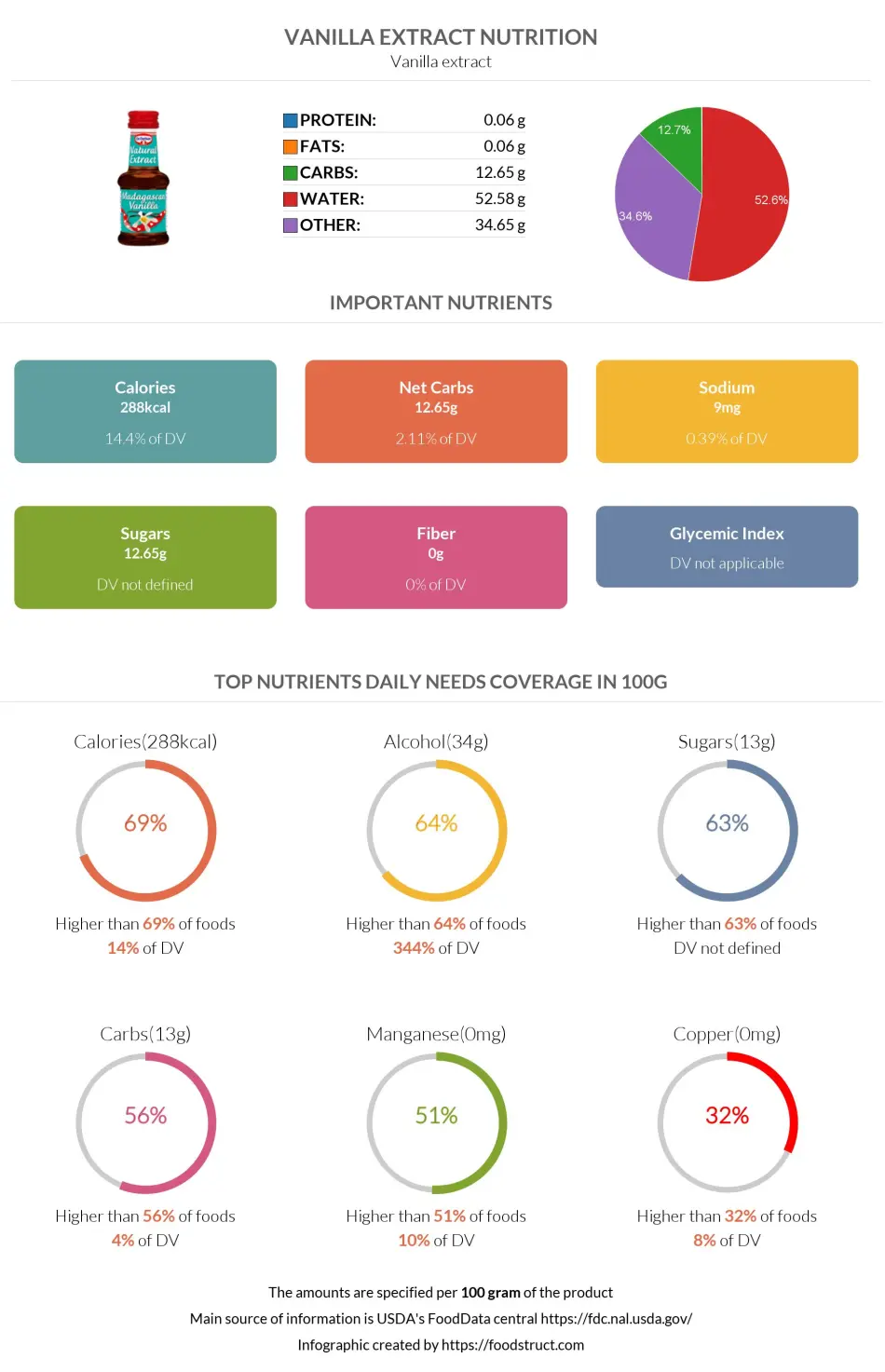
References
All the values for which the sources are not specified explicitly are taken from FDA’s Food Central. The exact link to the food presented on this page can be found below.

